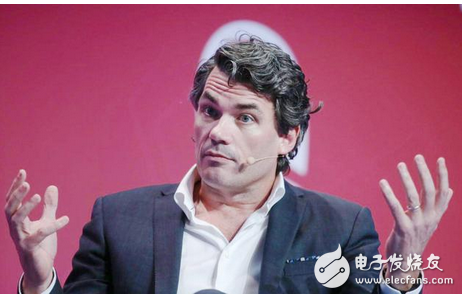The booming automation and intelligent technology has pushed the global job market to the brink of drastic changes. The head of a leading telecommunications operator in the world has predicted that 80% of jobs today are likely to disappear in the future.
During the annual HSBC Innovation Summit last Friday, BT Group plc CEO Gavin Patterson said: "Internet, data, processing power is ubiquitous, sensors are everywhere, plus augmented reality and virtual reality, these are intertwined The future looks very different. Frankly speaking, among the work people do today, it is likely that 80% of the future will not exist. It is not very clear where we will go."
According to reports, not only the BT CEO with more than 80,000 employees, but also HSBC CEO Stuart Gulliver, who attended the summit, said that within five years, it is impossible to have as many jobs as today. HSBC employs more than 265,000 people worldwide.
However, Gulliver believes that the replacement of certain jobs by robots and advanced computing technology does not mean that the number of people employed must be reduced. "There may be some new jobs, and our responsibility is to control this change."

Gavin Patterson, CEO of BT Group
This is not the first time Patterson has publicly mentioned the impact of a rapid shift in the nature of technology on businesses. At the Davos Forum in winter in January this year, he said that BT handled tens of thousands of cyber attacks every day. In the 18 months before the month, the cyberattacks suffered by the company surged tenfold.
The theme of the Davos Forum was the “Fourth Industrial Revolutionâ€. Also in January, the World Economic Forum (WEF) released a report predicting the fourth industrial revolution, which is expected to be by 2020, artificial intelligence, robotics and others. Technological changes will cause more than 5 million people worldwide to lose their jobs.
The WEF report also predicts that 7.1 million jobs will be reduced through reduction, automation or de-intermediation, while 2.1 million jobs will be created, mainly in more specialized areas such as computers. , mathematics, architecture, and engineering. The creation of these new jobs can partially offset the negative impact of job reductions.
In July this year, Deloitte, one of the Big Four accounting firms, released a study. It is estimated that in the next 20 years, automation will eliminate at least 800,000 jobs in the commercial service sector, and 1 million jobs in this field may be replaced by robots, accounting for A quarter of jobs in such industries in the UK. The average job share of robots in the face of robots taking away their jobs is 35%.
In August this year, Wall Street’s article also mentioned that Carl Benedikt Frey and Michael A. Osborne, professors at Martin College in Oxford, predict that about 47% of jobs in the United States will be replaced by robots in the next decade or two.
According to the findings of the Oxford University professors above, the analysis team led by Morgan Stanley's chief European economist Elga Bartsch believes that 15 occupations are replaced by robots.
Aspire Vape pen, Manufacture Aspire Vaporizer, Aspire Vape pod
Shenzhen Xcool Vapor Technology Co.,Ltd , http://www.xcoolvapor.com